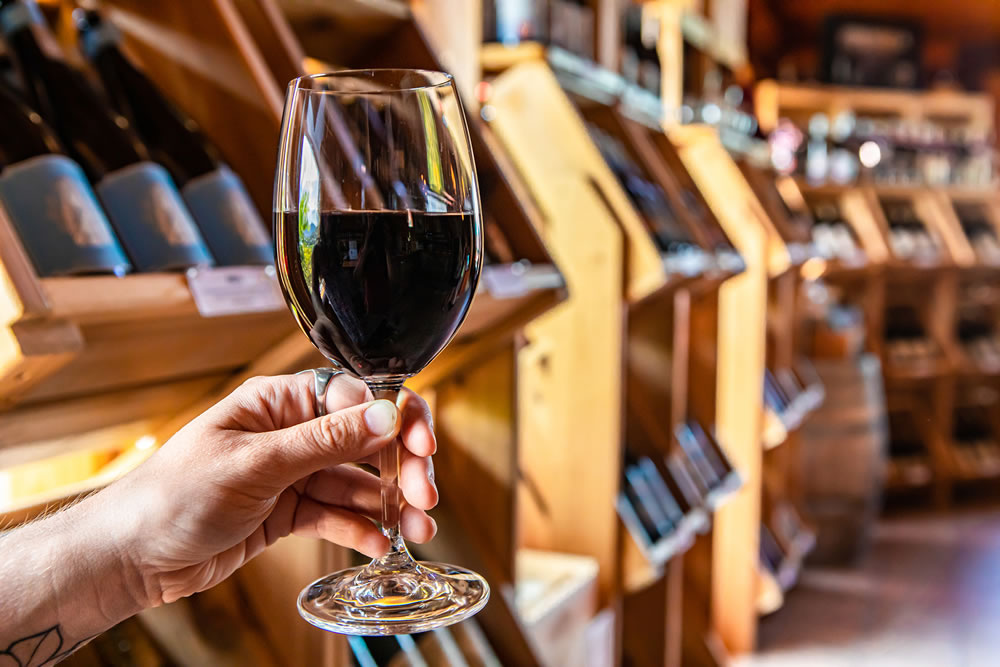
Oliver Staub, the investment director at Cult Wines, looks at how fine wine performs during a financial crisis.
As Covid-19 has continued to spread rapidly, the full scale of the risk to the global economy has hit markets with rarely seen violence: the speed of the sell-off in equities and “risky” asset classes has only been matched by the rise in price of safe haven assets such as US government bonds or gold.
As always in a market crisis, the unknown factors lead to asset price dislocation as well as extreme volatility, which in turn lead to irrational behaviour and lack of long-term perspective.

As a wine investment manager at Cult Wines, the easy route for us would be to tell investors that wine, as an asset class, is a safe haven and that it has not experienced the turmoil we have witnessed in the last few weeks, therefore it’s a much better asset class. A few charts focussing on this difficult recent period would prove this.
However, we strongly believe in a balanced, transparent approach backed by real figures and in focussing on the long term, not just an isolated few weeks to support our views or prove a point.

The last few weeks have highlighted and reminded us that investment returns are intrinsically linked to risk and that, when volatility increases, it pays to have a diversified portfolio to cushion against violent market movements.
Our experience and our statistical analysis prove that wine, as an asset class, provides diversification, reduces risk and enhances long term returns as part of a multi asset portfolio. It has both long term appreciation potential and wealth preservation characteristics.

How does fine wine perform during a financial crisis?
Equities across the world have dropped more than 20% in two weeks at time of writing, representing the worst week for global markets since the 2008 financial crisis and one of the fastest sell-offs ever. As a proxy for the current situation, let’s compare the historical performance of equity indices, gold and fine wine during the 2008-2010 period and its aftermath to get insight:
· Fine wine, with less correlation to the traditional capital markets, outperformed the MSCI World index during the 2007 -2009 financial crisis period (exhibit 1).
· Equity global indices were hit the most during the year 2008, while gold – considered as a safe haven asset – delivered a positive gain of 1.6% (exhibit 2).
· Fine wine price volatility is a lot more subdued than gold or equities (exhibit 3).

What about the long term then?
Over the long-term, the inclusion of fine wine reduces risk and provides diversification benefits to a portfolio. In addition, allocation to fine wine increase a portfolio’s long-term risk-adjusted returns (exhibit 4).
How does wine compare with other alternative asset classes?

What is happening in the current period?
At a time when investors re-assess their portfolio composition, we feel it’s important to re-iterate the credentials of fine wine as an addition to your portfolio and why every diversified investor should allocate a portion of their money to the asset class:
· Steady appreciation over time.
· Low volatility.
· Wealth preservation/defensive asset class especially in turbulent markets.
· Physical asset.
· Capital gain tax free (in the UK and many other fiscal jurisdictions).

Of course, currently, one could argue that holding cash in the current context is a better hedge against volatility and potential losses.
However, whilst true, cash does not appreciate in value and is only attractive when all assets are falling with a view to be deployed when the opportunity arises. Held over the long term, it depreciates and does not produce any return, especially in a low interest rate environment which will last longer after rate cuts by both the Fed and Bank of England.

For all these reasons, we continue to believe fine wine offers a unique balance of risk and reward, which become more apparent in periods such as this one.
We cannot foresee how far reaching the current sell off will be, and we are certainly not saying there will be no downward pressure on global wine prices. However, we believe the demonstrated past resilience of this asset class and its ability to deliver uncorrelated returns over the long term, make it a very strong candidate for opportunistic buying should prices suffer from rippling effects.
